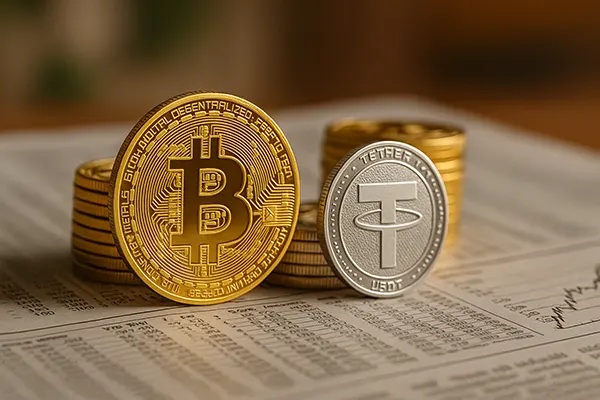
How Cryptocurrencies Support Independent Media and Human Rights in Censored Countries
In countries where freedom of speech is restricted and traditional financial channels are either blocked or heavily monitored, cryptocurrencies have emerged as a vital tool for journalists, NGOs, and activists. Digital assets like Bitcoin and stablecoins such as USDT allow them to bypass state controls, receive donations, and fund their work independently. This decentralised financial infrastructure has become a lifeline for those striving to speak truth to power under the threat of repression and censorship.
Cryptocurrencies as a Lifeline in Authoritarian Regimes
In Iran, cryptocurrency adoption has grown significantly among those working in civil society. Due to sanctions and state surveillance of bank transfers, many Iranian human rights groups rely on Bitcoin to receive international donations and support. This enables them to pay for legal aid, safe communications equipment, and essential supplies without alerting authorities.
Similarly, Russian independent journalists and media projects have been turning to stablecoins like USDT on the TRON network. Since Russia’s full-scale invasion of Ukraine, Kremlin censorship has intensified, and bank accounts of dissenting voices are often frozen. Crypto provides a discreet, censorship-resistant way to remain operational even in exile.
In China, where capital controls and government surveillance of financial transactions are intense, activists use decentralised wallets to accept donations from abroad. VPNs and privacy coins like Monero are often used in tandem to increase anonymity, despite growing crackdowns by Chinese authorities on crypto-related activity.
Real-World Examples and Their Impact
Newsrooms such as Meduza and OVD-Info have openly reported the use of cryptocurrencies to remain afloat after being labelled “foreign agents” by the Russian government. Their crypto wallets, published on their websites, receive thousands of dollars in stablecoin donations monthly.
Iranian civil society organisations, such as United for Iran, have distributed guides on how to set up wallets securely and trained their supporters to avoid detection when sending crypto donations. These tools are part of a broader toolkit that helps them maintain financial resilience.
In authoritarian states, even small donations can make a large impact. Whether paying for web hosting or legal representation, these transactions occur outside of government scrutiny, preserving the independence and effectiveness of rights-focused initiatives.
The Role of Decentralised Finance in Empowering NGOs
Unlike traditional banks, decentralised finance (DeFi) systems allow users to manage funds directly without intermediaries. This is particularly useful for NGOs and media operating in politically unstable regions, where bank accounts can be frozen arbitrarily.
Decentralised applications (dApps) enable organisations to earn interest, convert between currencies, and automate payments to staff or freelancers — all without relying on banks. Smart contracts also allow for transparent, conditional funding, increasing donor trust.
Moreover, the global reach of DeFi platforms means that activists can receive contributions from anywhere in the world instantly. This bypasses SWIFT network restrictions or national sanctions, providing a continuous stream of support, especially during crises or internet blackouts.
Operational and Strategic Benefits
Using DeFi tools, some independent organisations have diversified their income by staking crypto assets or participating in decentralised grant programmes. This passive income model reduces reliance on sporadic donations and increases long-term stability.
Peer-to-peer exchanges make it possible to convert crypto into local currency even in places without formal exchanges, providing liquidity where needed. Such flexibility is crucial in volatile economies where inflation erodes local purchasing power rapidly.
Importantly, these technologies also foster a sense of financial agency. For individuals under surveillance or facing asset seizure, the ability to self-custody funds represents not just survival but dignity and autonomy in their mission.

Risks, Compliance, and Ethical Considerations
Despite their promise, cryptocurrencies come with serious risks. In countries with strict anti-crypto laws, possession of digital assets can lead to prosecution. Governments may interpret crypto use as money laundering, espionage, or terrorism financing, even when used transparently for legitimate causes.
There is also the threat of confiscation. If authorities identify wallet addresses, they may pressure individuals to surrender private keys. For this reason, operational security — such as using hardware wallets and mixing services — is paramount.
Compliance with KYC (Know Your Customer) and AML (Anti-Money Laundering) standards is another hurdle. While decentralised exchanges offer anonymity, centralised platforms often require identity verification, exposing donors and recipients to surveillance. Balancing transparency and safety is an ongoing challenge.
Building Safer Crypto Practices
Education is key. NGOs are increasingly investing in digital security training, teaching staff and donors how to use crypto safely and anonymously. This includes cold storage practices, transaction obfuscation, and avoiding phishing attacks.
Collaboration with legal and crypto-savvy advisors can help navigate regulatory grey areas. Some organisations are also setting up registered non-profits in crypto-friendly jurisdictions to reduce exposure to legal risks at home.
Ultimately, the responsible use of cryptocurrencies demands vigilance. However, when used wisely, these tools empower journalists and activists to continue their work in the face of oppression — and that remains an invaluable contribution to global human rights.


